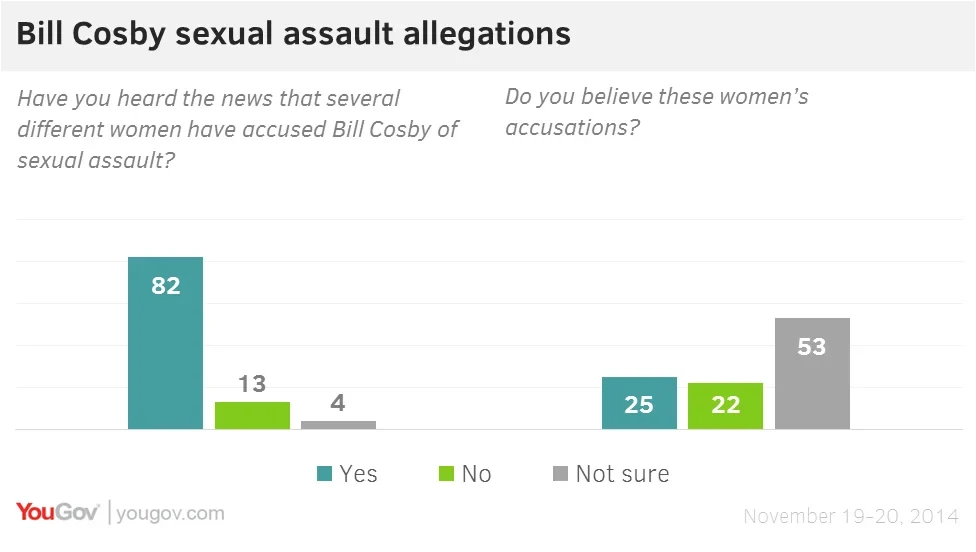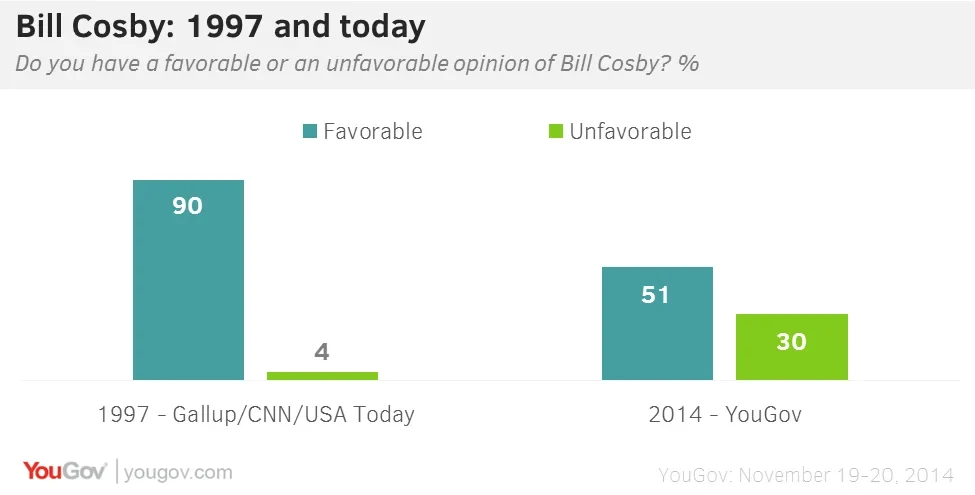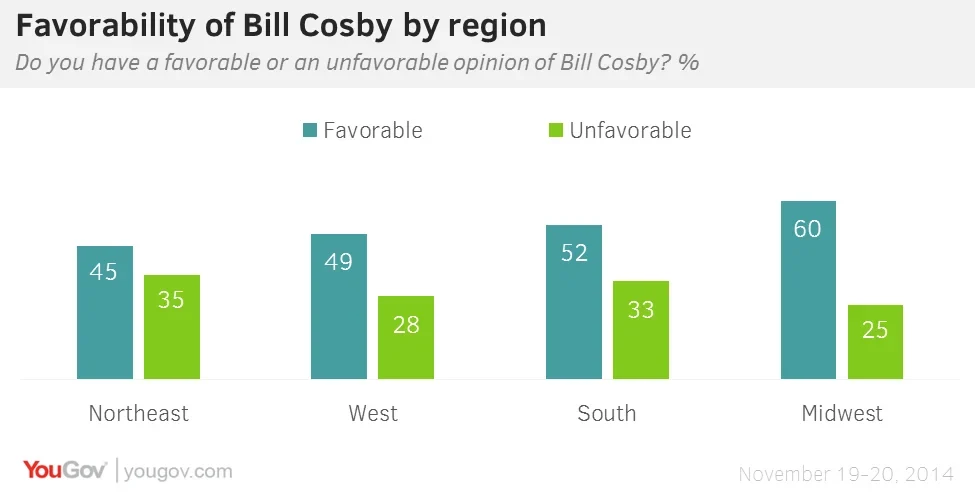Public opinion towards Bill Cosby has soured, and the vast majority of the country have heard about the sexual assault allegations against him
The list of women accusing Bill Cosby of sexually assaulting them is growing ever longer, with a seventh woman coming out today to say that the comedian had drugged and raped her when she was 19 years old. Questions over these allegations have quietly dogged him for years, but the issue took on new prominance in October when comedian Hannibal Buress blasted Cosby for being a rapist at the same time as chastising black men for wearing their pants low. Bill Cosby denies the allegations but they have already begun to have an impact on his professional life after NBC cancelled a planned sitcom it had been working on starring Cosby.
YouGov's latest research shows that 82% of Americans have heard about the sexual assault allegations against Bill Cosby, while only 13% say that they hadn't. When people are asked whether they believe these accusations, 25% of Americans say that they do, while 22% say that they don't. 53% aren't sure either way.

In 1997 a poll by Gallup/CNN/USA Today asked Americans whether they had a favorable or unfavorable opinion of Bill Cosby. 17 years ago, 90% of Americans said that they had a favorable opinion of Bill Cosby and 4% had an unfavorable opinion of Bill Cosby. Today, however, only 51% of Americans say that they have a favorable opinion of him, while 30% have an unfavorable opinion.

Some of the largest disparities between demographic groups concerning their attitudes towards Bill Cosby are regional. People in the Northeast are the least likely to have favorable opinions of Cosby (45%) and the most likely to have unfavorable opinions of him (35%). Most people in the South (52%) and Midwest (60%) have positive opinions of the man, and only 25% of Midwesterners say that they have an unfavorable opinion of him.

Black Americans have the highest overall favorable opinion of Bill Cosby, with 65% of black Americans saying that they like him and only 17% saying that they don't. This compares to 51% favorable and 34% unfavorable among white Americans.
Full poll results can be found here.









